Constructing the future
Sofia Echo Com, Marlene Smits, 28.01.2005
Eco-and cultural tourism seem to be the magic words for Bulgariaís future in tourism. Dutch minister Sybilla Dekker of VROM (Housing, Spacial Planning and Enviroment) speaks about Bulgariaís potential in this area and Dutch involvement. ďI visited Sofia for a couple of days in June 2004. This visit definitely sparked further interest in exploring more of the countryís historical, cultural and natural heritage. I was very impressed by the artefacts exhibited at the National Museum of History, Alexander Nevski cathedral and Boyana Church. The Bulgarian people are so proud to share their rich history with visitors, so that they made it a great experience for me. I think that if more tourists start to explore Bulgaria Ė and more and more people are Ė this rich history is a very important factor for making Bulgaria an attractive land for tourists. If you combine this with the very diverse natural resources that the country enjoys, Bulgaria has great opportunities in the field of eco- and cultural tourism. During a dinner arranged by the ambassador, I was seated next to Minister of Culture Dimitar Abrashev. I found that he was very committed to further exploring the possibilities of eco- and cultural tourism. We discussed that this should not happen through establishing enormous hotels, but more by creating intimate small lodges, in which people can really get acquainted with Bulgariaís culture and traditions, and at the same time enjoy the vast nature. With respect to the Black Sea coast, which already attracts many tourists, attention should be focussed on making sure that, if one chooses to build so close to the sea, that one leaves room for more diverse ways of construction. In this way, one ensures that the coast remains attractive to many types of tourists. Many beaches in Europe, like for instance in Spain and France, are clogged up with big hotels and resorts. Bulgaria can stand out in this respect from these countries, and offer something extra. This, however, also means that there lies a challenge in making sure that the infrastructure is in place. Itís a never-ending discussion that we also have in The Netherlands: what to do first? If you want to develop an area, then you also have to invest in infrastructure, whether you are talking about roads, railroads, harbours or airports. Thatís also the reason why, during my visit to Bulgaria, I said: most important is to have a clear idea which areas you want to develop and for what purpose. Simply, make a spatial development plan of what Bulgaria can look like after investment, development of the Bulgarian people and a more accessible economy. What do we do with agriculture, how do we protect the landscape, how do we want to develop the coastline, what are the areas that have more of an economic activity? In describing and planning all these aspects, one can create a sustainable national strategic spatial plan that is a positive stimulus for the Bulgarian economy. So, everything should be looked at on a national level, and after that on a regional and even municipal level. This is what we do in The Netherlands. We have made a long-term spatial plan for Holland, up to 2030. The Dutch government supports a number of projects in Bulgaria. The focus is on protecting and sustaining the cultural and historical heritage, but also, to make these treasures accessible, protecting Bulgariaís natural resources, and finding ways to create more possibilities for tourism that respect nature. Mainly these projects imply that the Dutch government supplies expertise in various areas, like training and educating people in tourism related construction work. For a country like The Netherlands, itís of great importance to exchange expertise with the new EU partners. It gives us new points of view. We donít have an attitude that says: this is how we do things and we know whatís good for you. Not at all. We can explain, we dealt with the situation in this way, according to our history and development. Bulgaria has to find its own way. But if countries can exchange knowledge and learn from each other, it has a positive influence on both sides. Of course, in The Netherlands we have great experience in city planning, considering the fact that we are a small country with a large amount of inhabitants, so we can give support in this area. But itís up to Bulgaria to decide how they use this information. During my visit to Bulgaria, the Minister of Regional Development and Public Works, Valentin Tserovski, gave me to understand that he is interested in Dutch experience with sustainable coastal development. Thatís why VROM Platform International has organised a visit to The Netherlands for Bulgarian government officials and experts from March 5 to 12. During this visit, trips are planned to locations that enjoy special attention for integration of natural development, the improvement of the quality of tourism, protection against floods, harbour development and spacial planning. This visit is followed up with a workshop on the April 8 and 9 where various municipalities, regional government and tourism professionals can exchange their findings and views in order to discuss which aspects of the visit could be relevant for Bulgaria.Ē see source
 Member of:
Member of:


















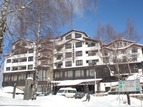
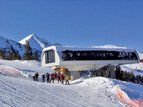
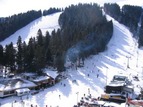

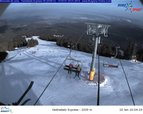
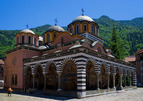
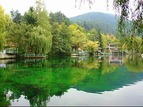


 Touroperator
Touroperator
